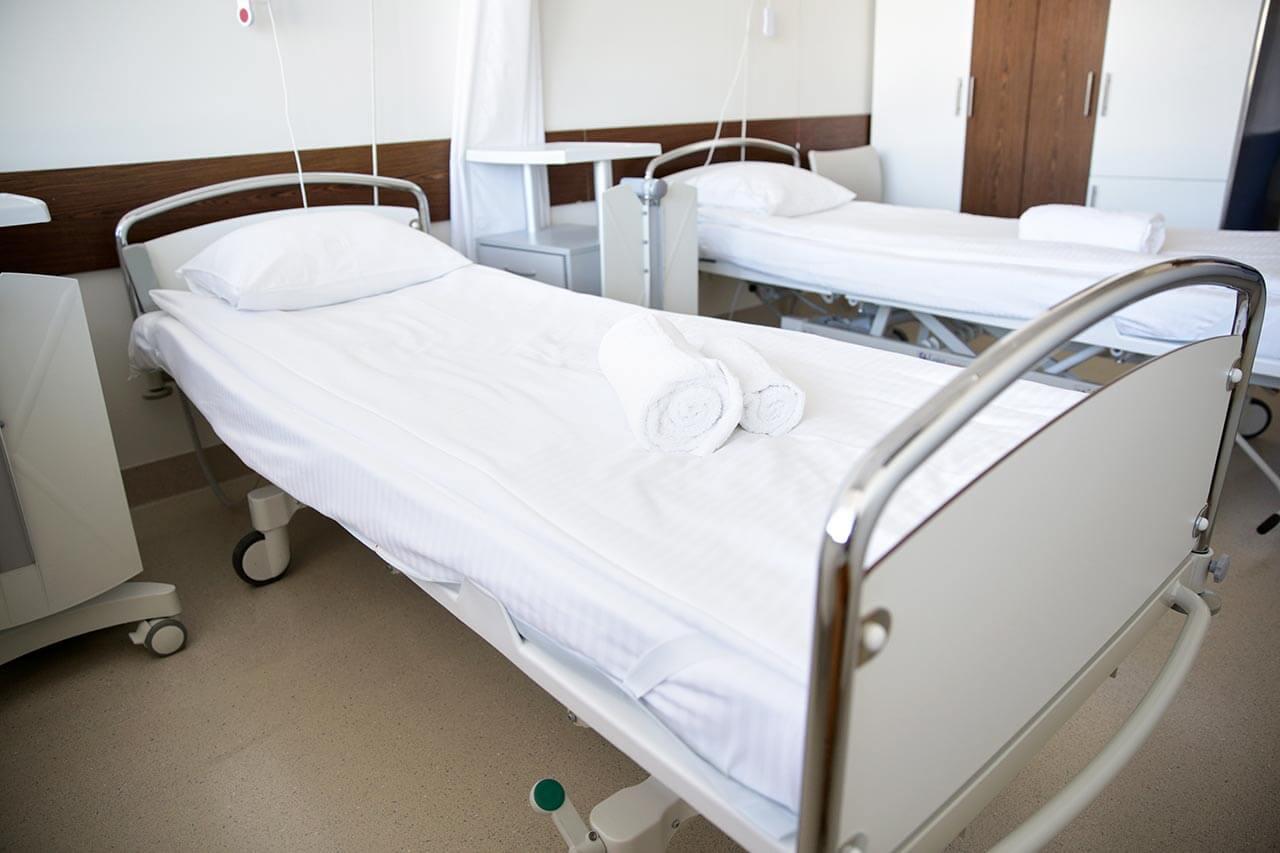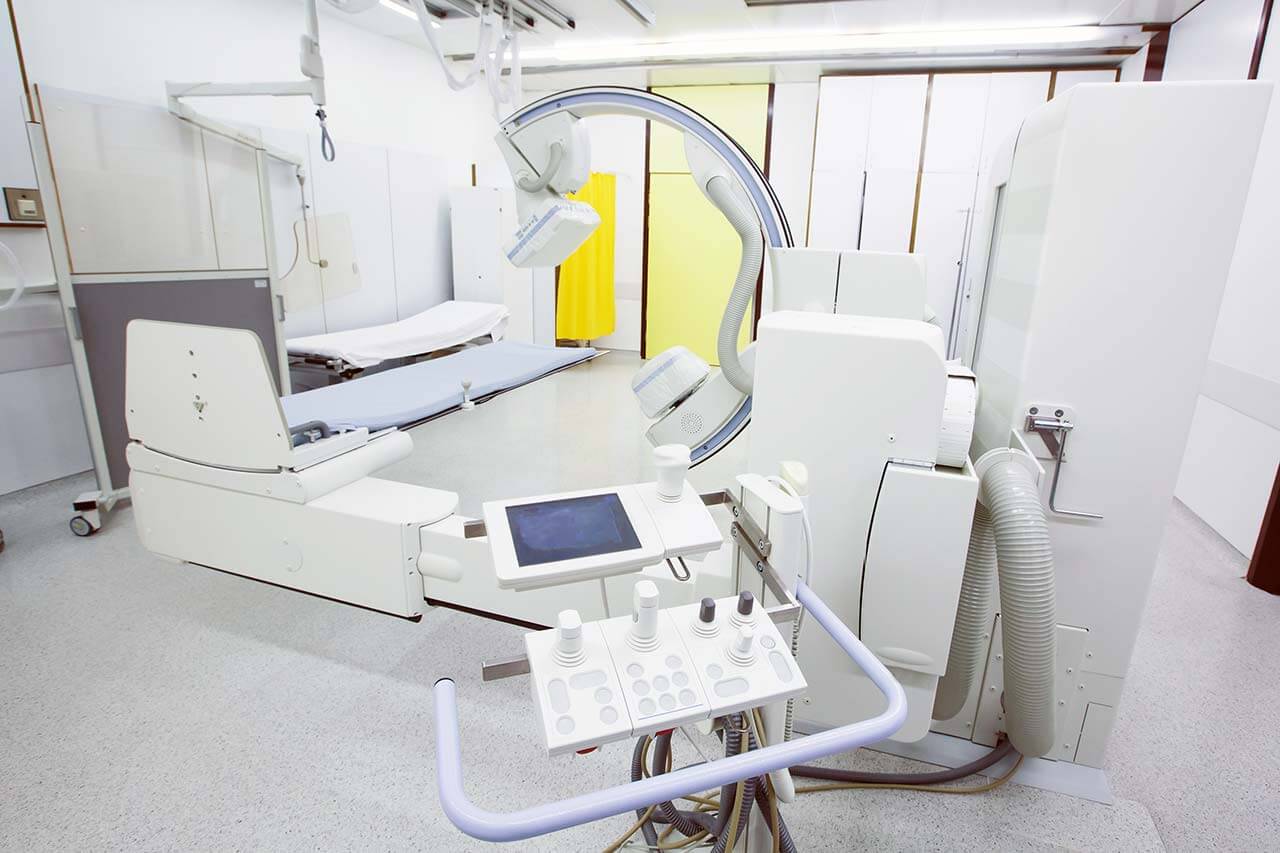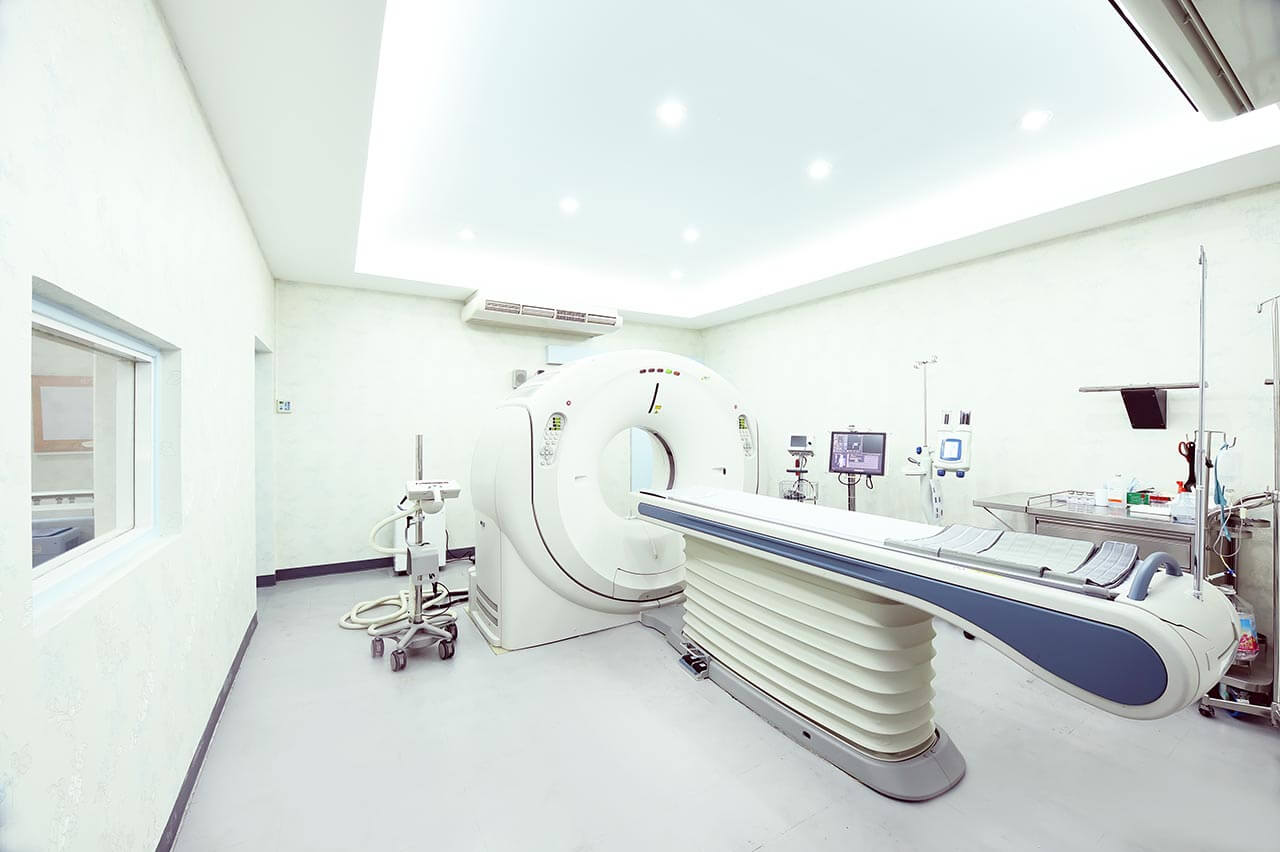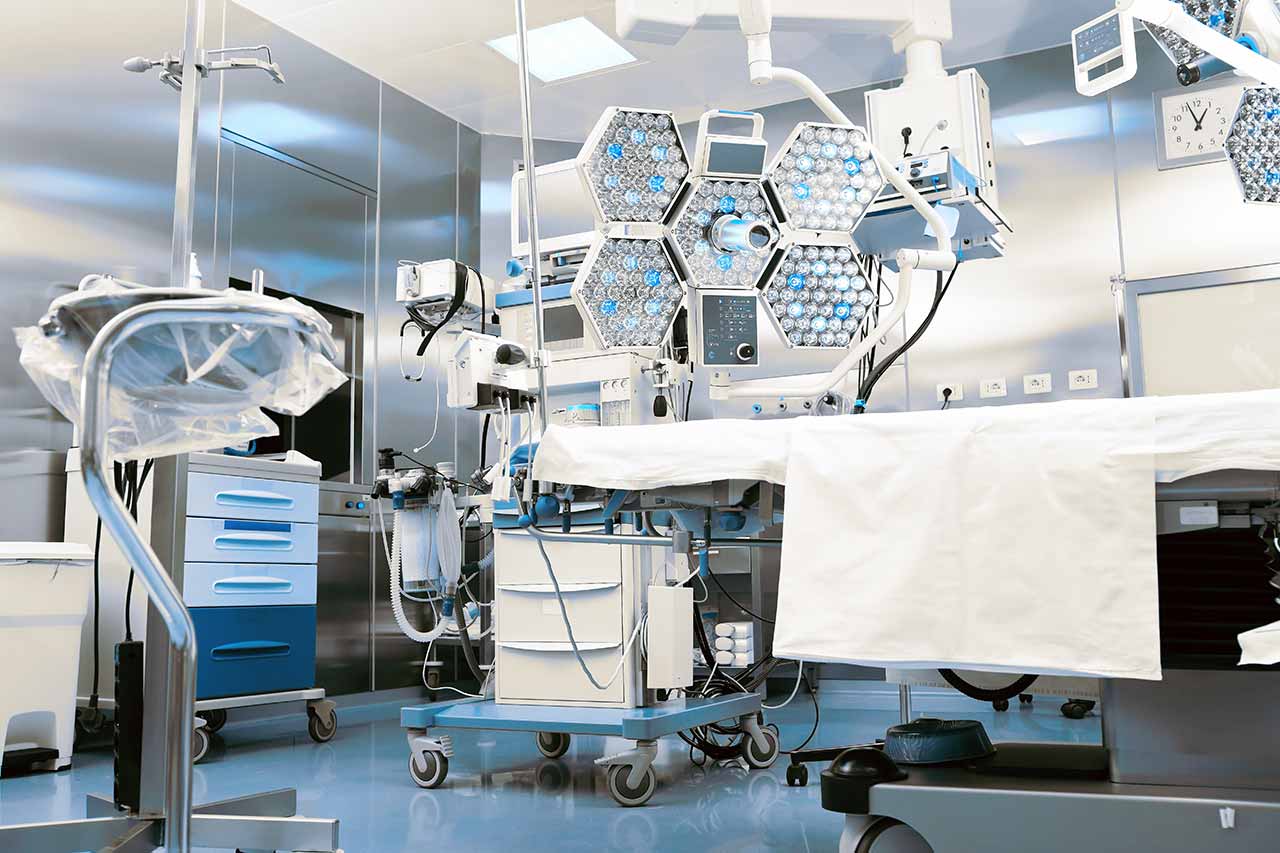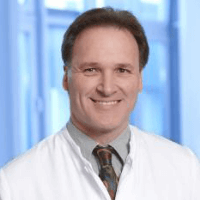
The program includes:
- Initial presentation in the clinic
- clinical history taking
- review of medical records
- physical examination
- laboratory tests:
- complete blood count
- general urine analysis
- biochemical analysis of blood
- inflammation indicators (CRP, ESR)
- indicators of blood coagulation
- tumor markers (CEA, CA19-9, CA125)
- gynecological examination
- ultrasound scan: pelvis, abdomen
- CT scan/MRI of the abdomen and pelvis
- preoperative care
- aa Vinci hysterectomy
- histological and immunohistochemical
examination of the removed tissues - symptomatic treatment
- control examinations
- the cost of essential medicines and materials
- nursing services
- full hospital accommodation
- explanation of future recommendations
How program is carried out
During the first visit, the physician will conduct a clinical examination and go through the results of the available diagnostic tests. After that, you will undergo the necessary additional examination, such as the assessment of liver and kidney function, ultrasound scan of the abdominal and pelvic organs, CT scan and MRI. Based on the results of an additional examination, the physician will clarify the stage of the oncological process, choose the surgical technique and the type of anesthesia.
Surgery with the da Vinci robot starts with general anesthesia. After anesthesia, the surgeon makes small incisions through which he inserts the manipulators of the da Vinci robot and a video camera into the pelvic cavity. Using manipulators, the doctor dissects the ligamentous apparatus of the uterus, ligates or coagulates the blood vessels and, finally, cuts off the uterus from the vagina. The video camera continuously transmits a three-dimensional image of the operating field in 12-fold magnification to the monitor. The uterus is removed through the vagina, and the vaginal stump is sutured with an atraumatic needle. The surgeon installs a drain into the abdominal cavity and finishes the operation.
Hysterectomy with the da Vinci robot allows not only to remove the uterus, but also to fix the preserved ovaries in the anatomical position. If radiation therapy is planned after the hysterectomy, the surgeon can dislocate the ovaries from the irradiation region and maintain their function. Excessive body mass, which usually complicates endoscopic surgery, is also not a direct contraindication to robotic intervention.
After the completion of the operation, you will be transferred back to the ward, under the supervision of the attending physician and nursing staff. Due to the minimal invasiveness of the operation and the short duration of general anesthesia, you will not need to stay in the intensive care unit for a long time.
Finally, the attending physician will evaluate the results of control examinations, schedule the date of discharge from the hospital and give you detailed recommendations for further follow-up and treatment.
Required documents
- Medical records
- MRI/CT scan (not older than 3 months)
- Biopsy results (if available)
Service
You may also book:
 BookingHealth Price from:
BookingHealth Price from:
About the department
According to the Focus magazine, the Department of Obstetrics, Gynecology and Mammology at the University Hospital Essen ranks among the top German departments specializing in breast cancer treatment!
The department offers the full range of services in the areas of its specialization. With appropriate clinical indications, the surgical treatment is carried out using modern minimally invasive techniques, which provide sparing and safe treatment. The department is Level I Perinatal Center, where more than 1,000 babies are born annually. Also, the department's specialists have vast experience in the management of multiple pregnancies.
The department is headed by a distinguished professional with a worldwide reputation Prof. Dr. med. Rainer Kimmig. He has more than 20 years of successful experience in the field of surgical gynecology and gynecologic oncology. He personally performed over 10,000 gynecologic surgical procedures using the very latest surgical techniques, and also contributed to the development of modern gynecologic surgery.
In the field of gynecology, the focus is on the treatment of benign and malignant diseases of the female reproductive system (ovaries, uterus, cervix, endometrium, etc.), therapy of urinary incontinence (urogynecology), fertility problems and hormonal disorders due to the gynecologic pathologies. The department has long experience in the use of robotic surgery, which today is considered the gold standard of surgical treatment. Thus, even radical resections can be performed using the modern da Vinci Surgical System, which provides minimal incision, minimal pain, speedy recovery after surgery and minimal risk of any complications.
The special department’s activities include mammology. The priority focus in this field is the conservative and surgical treatment of breast cancer. The range is complemented by plastic reconstructive interventions aimed at restoring the aesthetic appearance of the mammary gland and ridding the woman of the complexes. The department performs breast reduction, augmentation, lift, reconstructive surgeries on the mammary gland.
In the field of obstetrics, the department specializes in the comprehensive management of pregnancy, including high-risk pregnancy, multiple pregnancies, and pregnancies with extragenital pathology, safe delivery, and postnatal care for the mother and child. Thanks to the excellent technical equipment, the department's doctors can identify pathologies in the child at the prenatal stage, as well as perform the invasive diagnostic procedures, for example, amniocentesis, chorionic biopsy.
The service range of the department includes:
- Gynecology
- Gynecologic oncology
- Diagnostics and treatment of endometrial cancer
- Diagnostics and treatment of cervical cancer
- Diagnostics and treatment of vulvar cancer
- Diagnostics and treatment of ovarian cancer
- Diagnostics and treatment of urinary incontinence, including stress urinary incontinence, pelvic organ prolapse (urogynecology)
- Special complex of exercises to strengthen the pelvic floor muscles
- Biofeedback technique
- Electrostimulation
- Surgical measures
- Other treatment methods
- Surgical gynecology
- Minimally invasive uterine removal
- Minimally invasive ovarian surgery
- Minimally invasive fallopian tube surgery
- Removal of myomas
- Ultra-radical surgeries
- Robotic surgery (da Vinci)
- Plastic surgery
- Labia reduction (labiaplasty)
- Gynecologic oncology
- Mammology (focus on the diagnostics and treatment of breast cancer)
- Diagnostics
- Mammography
- Ultrasound examinations
- Computed tomography
- Magnetic resonance imaging
- Skeletal scintigraphy
- PET-CT
- Biopsy (imaging-guided tissue sampling)
- Therapy
- Surgical treatment
- Intraoperative irradiation
- Systemic therapy (neoadjuvant therapy, radiation and chemotherapy, antihormonal therapy, antibody therapy, immunotherapy, targeted therapy)
- Breast plastic surgery (breast augmentation, reduction, lift, breast reshaping)
- Diagnostics
- Obstetrics
- Prenatal diagnostics
- Fetal echocardiography
- 3D ultrasound
- Management of multiple pregnancy
- Management of high risk pregnancy
- Preterm birth
- Pre-eclampsia
- Invasive diagnostics and therapy (for example, chorionic villus sampling, amniocentesis, cordocentesis and blood transfusion)
- Delivery (natural childbirth, cesarean section)
- Pain relief during childbirth (relaxing baths, acupuncture, aromatherapy)
- Postnatal care for mother and baby
- Prenatal diagnostics
- Other medical services
Curriculum vitae
Education and Professional Career
- 1978 - 1984 Study of Human Medicine at the Ludwig Maximilian University of Munich.
- 1984 Admission to medical practice.
- 1986 Doctoral thesis defense (with honors).
- 1991 Professional certification in Obstetrics and Gynecology.
- 1991 - 1998 Senior Physician, Department of Gynecology and Obstetrics, University of Munich, Grosshadern Hospital.
- 1994 - 2001 Member of the Cancer Center Munich.
- 1996 - 2001 Head of the Educational Center Working Group on Gynecological Endoscopy of the German Society of Gynecology and Obstetrics, Department of Gynecology and Obstetrics, University of Munich, Grosshadern Hospital, Section for Diagnostics and Operative Hysteroscopy.
- 1999 Theoretical foundations of the specialty (Afterloading method and the use of radium-226).
- 1999 Habilitation and Venia Legendi, Ludwig Maximilian University of Munich, as well as the appointment as PD at the same university.
- Since 1999 Member of the Ovar Research Group of the Working Group on Gynecologic Oncology (AGO).
- 2000 Invitation to the Department of Gynecology and Obstetrics at the Ruhr University Bochum (Head of the Department of Gynecology at the Marien Hospital Herne; Successor to Prof. Dr. med. K. Quakernack, primo loco).
- Since 2001 C4 Professor in Gynecology and Obstetrics, Department of Obstetrics and Gynecology, Faculty of Medicine, University of Essen (Head of the Department of Obstetrics, Gynecology and Mammology at the University Hospital Essen, Successor to Prof. Dr. A. E. Schindler).
- Since 2001 Head of the Department of Obstetrics, Gynecology and Mammology at the University Hospital Essen.
- Since 2002 Establishment and management of the Ovarian Cancer Center Essen of the Working Group on Gynecologic Oncology (AGO) of the German Society of Gynecology and Obstetrics (DGGG).
- 2003 Admission to the list for the position of C4 Professor in the Department of Gynecology and Obstetrics, Grosshadern Hospital, University of Munich, Successor to Prof. Dr. Hermann Hepp (primo loco).
- 2003 Medical Director of the Breast Center at the University Hospital Essen.
- 2006 President of the Congress of the German Continence Society.
- 2007 Founding Member and Faculty Member of the European Academy of Senology.
- 2008 Head of the Center for Gynecologic Oncology Essen, German Cancer Society (DKG).
- 2008 Head of the European Society of Gynecologic Oncology (ESGO).
- 2008 Head of the European Training Center for Obstetrics and Gynecology in Essen, European Board and College of Obstetrics and Gynaecology (EBCOG).
- 2009 Head of the Department of Gynecologic Oncology of the Multidisciplinary Cancer Center Essen, funded by the German Cancer Foundation.
- 2009 Invitation to the Council of the European Society of Gynecologic Oncology (ESGO) as a Representative of Central Europe.
- 2009 Appointment of the German Academy for Gynecology and Obstetrics (DAGG) as the President of Congress in 2011.
- 2009 - 2013 Council Member of the European Society of Gynecologic Oncology as the Representative of Central Europe (European Society of Gynecologic Oncology) and Head of the Education Committee (2011 - 2013).
- Since 2010 Establishment and management of the Epicenter Germany Сenter for Robotic Surgery in Gynecology (ISInc.), Da Vinci SI System®.
- 2011 Council of the European Society of Gynecologic Oncology (ESGO), Head of the Congress of Education Committee, President of the German Academy of Obstetrics and Gynecology (DAGG) in Berlin.
- 2012 Member of the Society of Pelvic Surgeons, USA.
- 2012 Founding Member of the European Institute of Gynecologic Oncology.
- 2012 "Honorary Director" of the Breast Center, Nanjing University, China (Initiation of the project by the German Federal Ministry of Health and the People's Republic of China).
- 2012 Invitation to the Quality Assurance Team in Medicine (BQS) in Gynecology of the Federal State of North Rhine-Westphalia.
- 2013 - 2016 Visiting Professor at Nanjing University, China.
- 2013 - 2015 Vice-President of the European Society of Gynecologic Oncology (ESGO).
- 2013 Council Member of the Society of European Robotic Gynecologic Surgery (SERGS).
- 2013 Commission Member for the Development of S3 Recommendations for the Prevention of Cervical Cancer of the German Cancer Society (DKG).
- 2013 Delegation to the Federal Expert Group on Gynecology for Cross-Sectoral Quality in Healthcare (SQG), Aqua Institute Göttingen.
- 2014 President of the Society of European Robotic Gynecologic Surgery (SERGS 6th) in Essen, May 22-24, 2014.
- 2014 First gynecologic surgery in Europe using a da Vinci Xi® Surgical System.
- 2015 Commission Member for the development of S3 Recommendations "Diagnostics and treatment of endometrial cancer" of the German Cancer Society (DKG).
- 2015 Secretary General/Treasurer of the Society of European Robotic Gynecologic Surgery (SERGS).
Photo of the doctor: (c) Universitätsklinikum Essen
About hospital
According to the authoritative Focus magazine the University Hospital Essen ranks among the top German hospitals!
With 27 specialized departments and 24 institutes, the hospital in Germany is a maximum care medical facility. The hospital has 1,300 beds for inpatient treatment. A highly qualified medical team of more than 6,000 employees takes care of the health of patients. All the specialists give preference to an interdisciplinary medical care, which guarantees a comprehensive treatment taking into account the smallest aspects of a particular pathology. The hospital annually diagnoses and treats more than 50,000 inpatients and about 195,000 outpatients, which testifies to the prestige of the medical institution and the highest quality of treatment in Germany.
The hospital presents all the modern medical fields. Nevertheless, special attention should be given to the following major fields of specialization as oncology, transplantology and cardiology, as well as research activities in the field of immunology, infectology and translational examinations of pathologies of the nervous system and behavioral disorders.
Established on the basis of the standard American model of Comprehensive Cancer Centers, the West German Cancer Center (WTZ) in Essen was recognized as the best medical facility of this kind in Germany in 2009. Nowadays, the center holds leading positions both on the national and international medical markets. The basis of its successful clinical practice is the use of very latest treatment methods and an interdisciplinary approach to each clinical case. The West German Organ Transplant Centre (WZO) is also recognized as one of the best in the country and one of the few in Germany, which specializes in the transplantation of all vital organs, such as kidney, liver, pancreas, heart and lungs. Special attention is paid to kidney and liver transplantation.
The hospital in Germany is proud of its high-tech medical equipment, experienced and competent staff, productive research activities, which allow to guarantee the accurate diagnostics and effective treatment, including rare and very complex clinical cases for every patient. Consequently, the hospital is considered a perfect embodiment of high-quality treatment in Germany.
Photo: (c) depositphotos
Accommodation in hospital
Patients rooms
The patients of the University Hospital Essen live in comfortable rooms designed in bright colors. The standard room furnishing includes an automatically adjustable bed, a bedside table, a personal wardrobe, a personal call button with a built-in light panel, a telephone, a TV and a radio. The Internet access is available at an additional cost.
Meals and Menus
The patients of the hospital are offered a daily choice of three menus. The patients are also offered alternative types of menus, if their religion requires the exclusion of certain foods. If you follow a certain diet or suffer from food intolerance, you will be provided with a menu of your choice by discussing it with your attending physician in advance. The hospital also houses a bistro and a cafe, where one can have a tasty snack, enjoy hot and cold drinks.
Further details
Standard rooms include:
Accompanying person
There are a few types of hotels for the accompanying persons, who want to stay near the hospital. The hotel of the Essen University Hospital offers apartments on the first floor of the nursing high-rise building. The DRK nursing also offers single and double rooms.
The hotel in Grugapark is available for the parents, whose children stay in the hospital. The parents of children with cancer can also stay here. Moreover, The Department of Pediatrics offers its rooms for parents.
